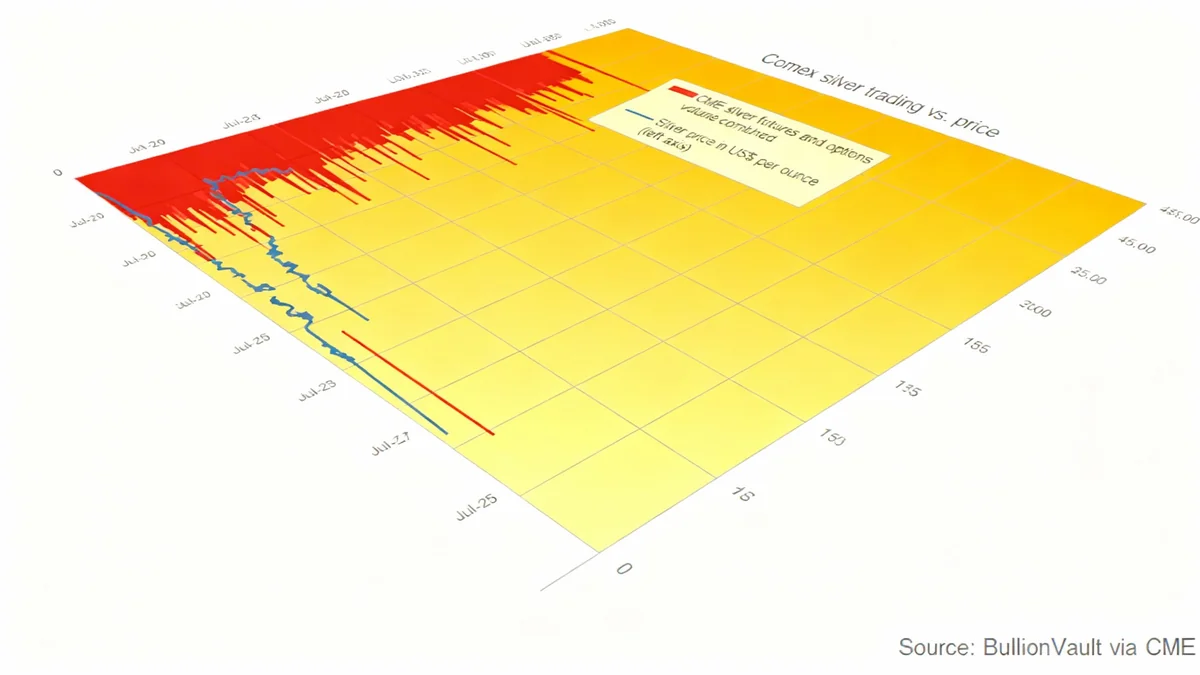An asset management firm has submitted regulatory filings for a new slate of exchange-traded funds (ETFs) that would offer five times the daily return of popular stocks and cryptocurrencies. The proposal, if approved, would introduce a new level of risk and reward for investors in an already speculative market segment.
Volatility Shares has filed for 27 new leveraged ETFs, including products tied to the performance of Tesla, Alphabet, Bitcoin, Ethereum, and Solana. This move represents a significant increase from the current maximum leverage of two times (2x) permitted by the Securities and Exchange Commission for single-stock ETFs, raising questions about investor protection and market stability.
Key Takeaways
- Asset manager Volatility Shares has filed for approval of 27 new leveraged ETFs.
- The proposed funds include products offering 5x daily leverage on assets like Tesla, Alphabet, and Bitcoin.
- This level of leverage is significantly higher than the current 2x limit for single-stock ETFs.
- Historical data shows a high failure rate for leveraged ETFs, with 55% having closed and 17% losing over 98% of their value.
- The approval process is complicated by the current government shutdown, which has limited the SEC's operational capacity.
A New Frontier in High-Risk Investing
The proposed funds aim to amplify the daily price movements of their underlying assets by a factor of five. For example, if Tesla's stock increased by 2% in a single day, the 5x leveraged Tesla ETF would aim for a 10% gain. Conversely, a 2% drop in the stock could result in a 50% loss for the ETF on that day.
This type of product is designed for short-term trading and is considered extremely risky. The compounding effect of daily resets can cause these funds to deviate significantly from the long-term performance of the underlying asset, often leading to substantial losses for investors who hold them for more than a day.
The market for single-stock ETFs has seen explosive growth since its inception. Assets under management surged from just $169 million in 2022 to $24 billion by 2024, demonstrating strong investor appetite for these specialized products. As of December 2024, there were 102 single-stock ETFs available, with 61 of them offering some form of leverage.
Regulatory Uncertainty Looms
The path to approval for these 5x ETFs is unclear, particularly given the ongoing government shutdown. The SEC, which is responsible for reviewing and approving such products, is operating with a skeleton staff. An SEC spokesperson noted that due to the lapse in appropriations, the agency's ability to respond to inquiries is limited.
What is a Leveraged ETF?
A leveraged ETF uses financial derivatives and debt to amplify the daily returns of an underlying index or asset. A 2x ETF aims to provide twice the daily return, while a 5x ETF aims for five times the return. These are complex financial instruments intended for sophisticated traders over very short time frames, as their performance can diverge dramatically from the underlying asset over longer periods.
Despite the operational challenges, some market observers believe the funds have a chance of being approved. Bryan Armour, director of ETF and passive strategies research for North America at Morningstar, suggested the filing is a test of the SEC's recent policies.
"I think they stand a chance. This is testing the limits of the SEC's more accommodative policy under the new administration," Armour stated. "I don't know where the limit is anymore for the SEC, and so it will be interesting to see."
He added that the current regulatory environment appears to favor a "let the market decide" approach to financial innovation. However, Volatility Shares declined to provide a comment on its recent filing.
The High Failure Rate of Leveraged Products
The historical performance of leveraged ETFs paints a cautionary picture for investors. These products have a high rate of failure and can lead to catastrophic losses. The structure of these funds makes them susceptible to rapid value decay, especially in volatile markets.
Leveraged ETF Performance Data
- 55% of all leveraged ETFs that have ever launched have since closed down.
- 17% of launched leveraged ETFs have lost more than 98% of their value.
Source: Morningstar data
These statistics highlight the inherent risks. The structure that amplifies gains also magnifies losses, and market volatility can quickly erode an investor's capital. Critics express concern that the availability of such high-leverage products contributes to the "gamification" of the stock market, encouraging speculative behavior, particularly among less experienced retail investors who may not fully understand the risks involved.
Impact on the Broader Market
The introduction of 5x leveraged ETFs could attract a new wave of speculative capital, potentially increasing volatility in the underlying assets like Bitcoin and Tesla. While proponents argue for market freedom and innovation, regulators and market analysts will be closely watching for signs of increased systemic risk.
The outcome of the Volatility Shares filing could set a new precedent for what is permissible in the ETF market. Whether the SEC allows this new level of leverage or draws a line will signal its future approach to high-risk investment products. For now, the investment community waits to see if the market is about to enter a new, more volatile era of trading.





